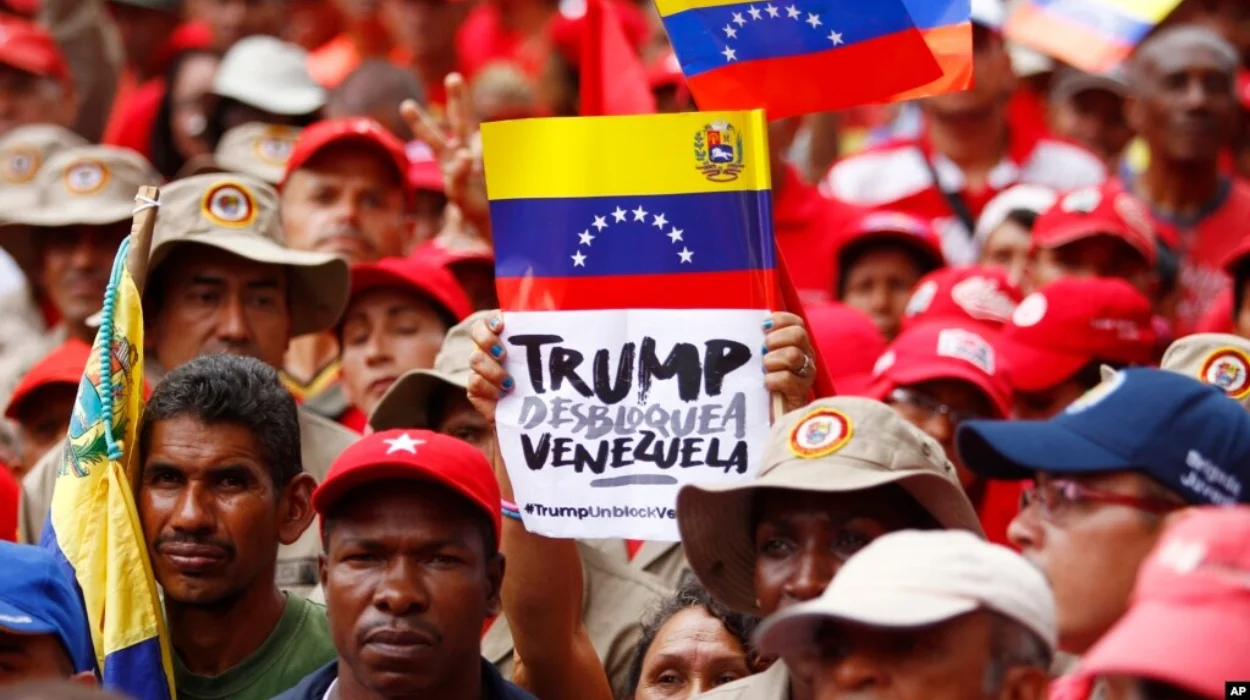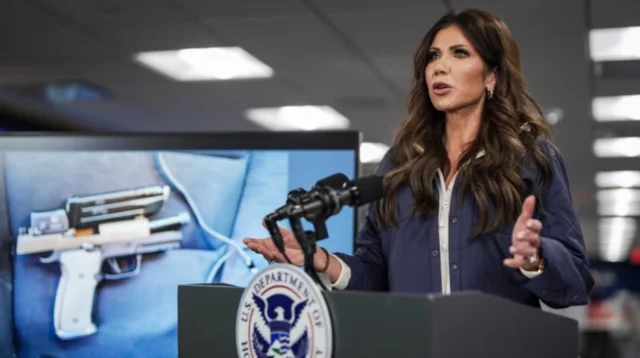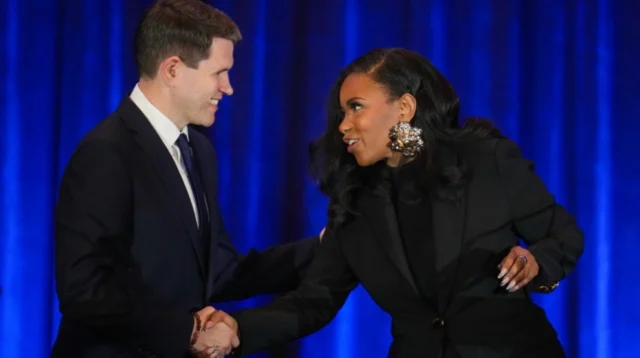On July 25, 2025, the U.S. Department of the Treasury’s Office of Foreign Assets Control (OFAC) officially designated the Venezuelan criminal group known as Cartel de los Soles (“Cartel of the Suns”) as a Specially Designated Global Terrorist (SDGT) entity. The action represents a dramatic upsizing of the anti-narcotics policy in the United States especially where it concerns state-related criminal networks in Latin America. It is claimed that the group acts on the direct directive of President Nicolas Maduro of Venezuela and senior officials in his regime, virtually matching the government and transnational drug trafficking business.
The term poses a great implication. In addition to asset freezing and forbidding any transaction with the organization, it is particularly successful in the task of making the government of Maduro appear as a bigger piece of the world of narco-terrorism. Washington’s decision seeks to both disrupt the group’s financial networks and isolate its members from the international banking system, cutting off the infrastructure that sustains their operations.
A Network Linking Drug Trafficking And Terrorist Organizations
According to the U.S government, Cartel de los Soles has close operational links with other organizations that have been defined as terrorists i.e. the Tren de Aragua in Venezuela and the Sinaloa Cartel in Mexico. Such partnerships facilitating a compound system of transcontinental drug trafficking and human smuggling enlarges the magnitude and stretch of criminal activities in targeting to wreak havoc U.S borders and challenging national security.
The Treasury thus states that such groups organize themselves across borders to enable the existence of narcotics flows that do not only exist as an organized crime but as an asymmetric threat. Labeling of Cartel de los Soles provides the aspect of the complexity of hybrid organizations, which can move through the protection granted by the state and those entities engaged in criminal activity and can be eliminated only through conventional means of law enforcement.
Political And Economic Implications For Maduro’s Government
Targeting State-Backed Illicit Economies
The U.S. sanctions directly impact the financial pipelines that allegedly sustain Maduro’s control. Cartel de los Soles is said to oversee major drug routes and laundering networks critical to propping up Venezuela’s internal patronage system and security forces. Cutting the taps is both aimed to reduce Maduro’s position of influence inside the country and to erode the economic foundations of coercion.
Its decision to relocate is at a time when the economy is in a bad shape. The inflation rates in Venezuela are still among the highest in the world and Maduro still lacks the legitimacy to sit in charge of the country after the controversial election in the year 2024. Sanctions are now fulfilled as a component of two-in-one: an arsenal, a tool of economic coercion and a signal to foreign partners about the risks of involvement into the Venezuelan state.
Diplomatic Fallout And Regional Reactions
United States and Venezuelan diplomatic ties are in a frozen state and there are no prospects of normalizing the ties in the near future. Maduro has rejected the new sanctions as political rally distractions and has pointed an emphasis on the domestic drug crisis in Washington.
However, the build-up makes the relationships among Venezuela and strategic partners like Russia and China tricky. These powers might now be finding it hard to sustain economic sustenance. In the meantime, the surrounding states affected by drug violence and outmigration could see greater U.S. pressure as a chance to assume an added regional role in enforcement and stability to be achieved.
Enforcement Challenges And Strategic Outlook
Complexity Of Dismantling Hybrid Networks
While symbolically powerful, the terrorist designation faces enforcement limitations. The cartel’s integration into Venezuela’s security structures makes it nearly impervious to conventional counter-narcotics strategies. With top figures shielded by political authority and protected by foreign alliances, direct arrests or prosecutions are unlikely.
As a workaround, the U.S. aims to block financial access, engage international law enforcement allies, and expand surveillance efforts. A recent example includes the early 2025 deportation of 250 gang members tied to Tren de Aragua in a detainee exchange with Venezuela. This demonstrates the multifaceted and transactional nature of current enforcement strategies.
Continuing The “America First” Security Narrative
The move aligns with President Trump’s 2025 national security doctrine, emphasizing the prevention of foreign threats through economic and legal instruments. Treasury Secretary Scott Bessent framed the sanctions as a necessary step to shield American communities from the effects of transnational narcotics networks linked to authoritarian regimes.
Officials describe narcotics trafficking as a deliberate weapon aimed at destabilizing the U.S., tying it to broader narratives involving border security, overdose fatalities, and organized gang violence. This messaging strategy reinforces domestic political support for an aggressive posture in international law enforcement.
Legal And Political Repercussions For International Justice
Precedent-Setting In Counterterrorism Law
Labeling a state-linked group as a global terrorist entity blurs the boundaries between foreign policy, criminal justice, and international law. It continues a pattern from earlier in Trump’s first term, when the Justice Department indicted Maduro and other top Venezuelan officials as narco-terrorists.
This latest development could pressure global financial institutions to cut ties with any Venezuelan entity suspected of aiding the cartel. It may also push U.S. allies to consider similar designations or enforcement actions, thus tightening the noose around Venezuela’s illicit financial channels.
Encouraging Broader Multilateral Engagement
Though primarily a U.S.-driven initiative, the designation could trigger expanded international participation. Countries previously reluctant to act may now be incentivized to align with U.S. policy or introduce their own restrictions. The multilateral momentum is essential to deny the cartel a haven in less-regulated jurisdictions.
Nevertheless, the rapid destruction of the cartel is unlikely until the internal cooperation of Venezuela is organized. Strategic patience, effective intelligence sharing and international backing of rule-of-law reform in Latin America are the key factors to long-term success.
This person has spoken on the topic: Security analyst Karl Mehta recently remarked,
“The U.S. move to designate Cartel de los Soles as a terrorist group highlights an intensifying phase in Washington’s narco-terrorism campaign, blending legal innovation with strategic enforcement to confront state-criminal entanglement in Venezuela.”
Gabbard described how it happened:
— Karl Mehta (@karlmehta) May 2, 2025
Officials cherry-picked parts of a 6-page intelligence document on Venezuela's Tren Aragua gang.
They excluded FBI confirmation that Venezuela's government supports the gang's US operations.
This selective disclosure had a purpose. pic.twitter.com/5BmdSvpZVW
The American sanctions against Cartel de los Soles is one of the turning points in the changing approach of the American policy against drugs, as it not only punishes the criminal gangs but also the governments which allegedly help the criminal networks. There are questions about whether such attempts will result in the break-up of the narco-state structure in Venezuela, but nothing is certain except that such pressure must continue, push with diplomacy, and be influenced by the very changeable regional and international alignments.





